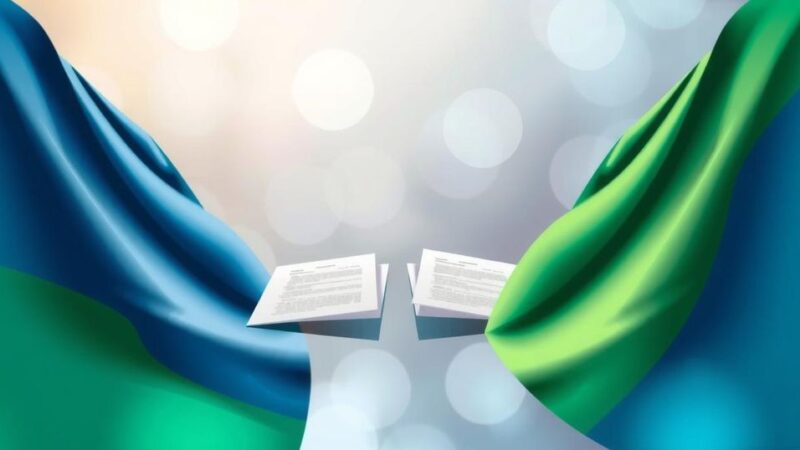The SADC has ended its peacekeeping mandate in the DRC following the deaths of peacekeepers amid escalating violence. Public opposition led to Malawi’s withdrawal, whereas South Africa increased military support. Experts stress a reevaluation of peacekeeping strategies is needed due to declining funding and overlooked conflicts in regions like Sudan, highlighting a troubling trend in African-led missions.
On March 13, 2025, the Southern African Development Community (SADC) announced the termination of its peacekeeping mandate in the Democratic Republic of Congo (DRC). This decision follows the tragic deaths of over a dozen peacekeepers, including ten South African and three Malawian soldiers during the conflict with M23 rebels in January 2025. Previously, the SADC Mission in the DRC, known as SAMIDRC, had been addressing the threats posed by these rebels in the eastern region of the DRC.
The evolution of SAMIDRC, which took over from earlier missions including the United Nations Force Intervention Brigade and the East African Community deployment, highlighted the increasing challenges facing peacekeeping operations in the region. The steady escalation of violence, indicated by the deaths of three Tanzanian peacekeepers in April 2024 and the recent fatalities in January, prompted SADC leaders to announce a phased withdrawal of troops due to the precarious security situation.
Chimwemwe Tsitsi, an expert on international relations from Malawi, indicated a shift in the peacekeepers’ operational approach, suggesting a reconsideration of engagement rules may be necessary. He highlighted that this shift from non-interference to a more assertive stance could have contributed to the heightened conflict and the eventual decision to withdraw.
Following the fatalities among peacekeepers, there was a considerable public backlash, especially in Malawi, where President Lazarus Chakwera ordered a cessation of troop deployments to the DRC. Many citizens, including Antony Manda, supported this decision, asserting that Malawi should not engage in conflicts that do not directly concern them. In contrast, South Africa decided to reinforce its military presence in the DRC.
Dr. Alex Vines from Chatham House observed ongoing mixed results in other regions with peacekeeping efforts, notably in Guinea-Bissau with ECOWAS involvement and more successful operations in The Gambia. He noted that innovative ad hoc arrangements, such as the Multinational Joint Task Force initiated by Nigeria, have shown promise in combating issues like the Boko Haram insurgency.
Currently, the southern Cabo Delgado province in Mozambique remains an active zone for the SADC Mission in Mozambique (SAMIM), which began operations in 2021 to counter extremist groups. However, the overall trend in African-led peacekeeping missions indicates a decline, exacerbated by budget reductions for peacekeeping efforts and requests for withdrawal from missions such as MONUSCO in the DRC.
Despite the exit of MONUSCO, troops from various African nations, including Kenya, Ghana, and South Africa, continue to participate in both UN and AU-led missions across the continent. Conversely, experts like Tsitsi caution that situations like the ongoing conflict in Sudan are being neglected without sufficient intervention from international or regional bodies. The steady decline in funding for peacekeeping missions casts further doubts on the future sustainability of such initiatives in Africa.
The recent cessation of the SADC peacekeeping mission in the DRC marks a critical juncture in regional efforts to maintain stability amidst escalating conflict. Public sentiment, evident in Malawi’s withdrawal decision, underscores the complexities involved in international peacekeeping. Experts suggest a reevaluation of peacekeeping strategies and funding is essential. Moreover, neglect of crises in regions such as Sudan raises concerns about the international community’s commitment to supporting peace in Africa. The future of peacekeeping in Africa hinges on addressing these multifaceted challenges.
Original Source: www.dw.com






